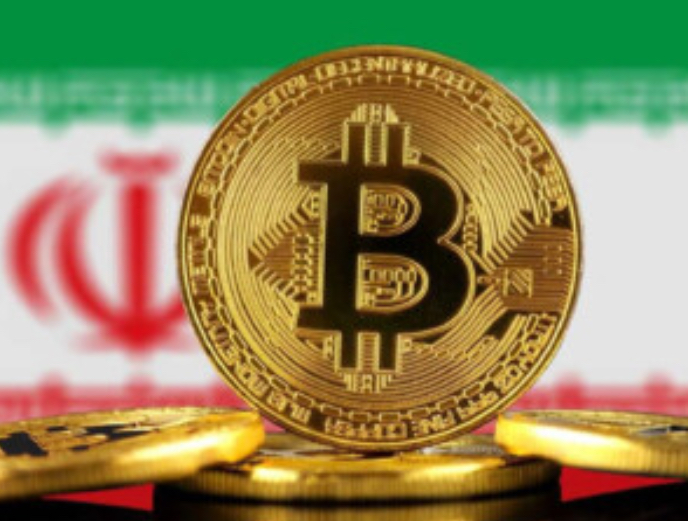Iran accounts for about 4.5% of Bitcoin mining, generating hundreds of millions in crypto assets to buy imports and evade sanctions.
Iran and Israel are in a tense conflict that escalated last night when Iran launched a missile attack on October 1, 2024, firing about 200 missiles. Israel successfully intercepted most of these with its Iron Dome defense system, aided by nearby U.S. naval destroyers. This conflict intensified after Israel killed Hassan Nasrallah, the leader of Hezbollah, on September 27.
This the the 2nd time when Iran attacked Israel this year, after firing hundreds of missiles and drones at it in April. Amid this Iarn-Israel conflict, the U.S. continued its sanctions on Iran for supporting terrorist organizations. The US imposed strict sanctions on Iran in 2018 over concerns about its nuclear program, sparking fears of potential weapon development. In response to the resulting severe recession and plummeting oil exports, Iran has turned to Bitcoin mining to address its economic challenges.
However, the country is leveraging its abundant energy resources to mine cryptocurrency, which provides a new source of income. This strategy not only helps Iran navigate sanctions but also ties its financial future to the evolving world of digital currencies.
Mining Bitcoin to Bypass Sanctions
Bitcoin mining is a very demanding process that involves a lot of electricity to run specific computers. For this, miners are rewarded with Bitcoins, which means that energy is exchanged for digital money. For Iran, which is rich in oil and natural gas but poor in cash, this process is a god-sent.
Experts believe that Iran controls about 4.5% of the Bitcoin mining network and earns hundreds of millions of dollars in digital currencies. These funds can then be used to buy imports in a way that sanctions limit the ability to do so financially.
This has almost become a policy for the Iranian government, with reports from the think tanks affiliated with the presidential office talking about using cryptocurrencies to bypass the sanctions.
The Role of Chinese Businesses
Iran’s Bitcoin mining industry has also enjoyed investments from China, the leading country in the global mining industry. In July 2019, Iran legalized cryptocurrency mining but demanded that miners had to obtain a license and pay a higher electricity rate.
Recently, Iran even offered bounties of up to $24 for tips on illegal crypto mining as the country grapples with power shortages amid a severe heatwave. Temperatures reaching 113°F (45°C) have strained the electricity grid, which officials blame, in part, on unauthorized crypto mining.
However, this has not deterred many unlicensed operations who are still in the business, some of them using free electricity from mosques.
Chinese firms have also invested in mining in Iran and have tended to provide cover for links with the Iranian military. One of the identified facilities is situated in the area of Rafsanjan Special Economic Zone, where large-scale mining activities have been set up.
Energy Conversion: From Oil to Crypto
The energy used by Iranian miners is off the charts. Accounts show that this mining activity consumes approximately 600MW of electricity, which is equivalent to 10 million barrels of crude oil per annum.
This is equivalent to about 4% of Iran’s total oil exports in the year 2020. In effect, by mining Bitcoin, Iran is exporting its energy and bypassing trade sanctions at the same time.
Implications for Financial Institutions
This approach causes a lot of concern for financial institutions that deal with cryptocurrencies. With Iran mining Bitcoin, there is a 4.5% likelihood that any Bitcoin transaction will involve fees paid to Iran miners.
For the financial institutions providing the crypto services, this is a significant sanctions risk because any association with the Iranian entities is likely to attract severe legal consequences.
As the US is thinking about the possibility of rejoining the nuclear deal, the place of Bitcoin mining in Iran’s economy could emerge as a major point of discussion.
Sanctions violations are a growing concern for financial institutions and they have to be very careful and establish the right measures. This also involves surveillance and banning of crypto transactions from Iranian miners.
Managing Sanctions Risks
However, there are solutions that financial institutions can take to mitigate the sanctions risks of Iranian Bitcoin mining. Some of the blockchain analytics tools can be used to identify and prevent deposits from Iranian entities. Through such approaches, financial institutions can avoid any violation of sanctions through their services.
Iran’s Bitcoin mining as a way to bypass sanctions and turn its oil into cash shows how cryptocurrencies intertwine with international trade restrictions. Since the crypto environment is still developing, financial organizations must be more cautious and timely address sanctions risks.

